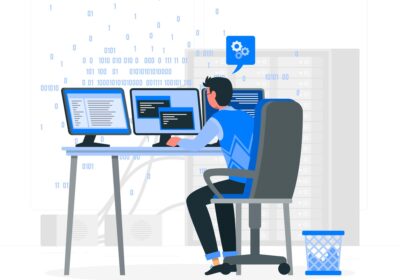It’s quite evident that mobile app development contributes significantly when it comes to transforming internal business operations of enterprises. Apps narrowed the gap between enterprises and their customers, helps build relationships, ensure in-house collaboration, and effectively accelerates a business to progress and rapid growth.
Ultimately, it all comes down to how well designed and developed the enterprise mobile app is. As many enterprises, despite having ideas, lack the skillset to develop mobile apps in-house, they tend to rely on capable developers. They want a great app ready without a lot of investment as well. That’s why outsourcing is popular today.
However, outsourcing development is not devoid of challenges, and requires the enterprise to take some precautionary steps to avoid mishaps or bad surprises. Enterprises often make many mistakes when outsourcing app development, which could harm the business.
Here are a few such mistakes enterprises should avoid when outsourcing mobile app development.
Not researching enough
Outsourcing a development company demands a lot of research. If the enterprise makes a decision off of an initial interaction with a potential partner, they may have some bad surprises coming toward them. They need to look into the development team, the pricing, development strategy, technical expertise, and most of all the capability to properly understand their vision and realize it with a product that meets business goals.
For starters, it’s best to look at the company’s portfolio, relevant case studies, and their past clients. There are many credible sources that provide reviews. Even if the enterprise is looking to get an MVP in the market, they should still invest some time researching potential partners as well as new trends when it comes to using mobile technologies for business.
No Agile balance
Almost every boutique mobile application development company practice Agile methodology. Still however, the concept of Agile seems to be misunderstood by many. Many developers prioritize working software before feature documentation itself. Detailed documentations are how they can avoid unexpected changes during the course of development.
The company should prioritize reviews and documentation at every stage of development, and hold standup meetings to ensure that the entire team is updated of the progress. Agile methodology makes sure that the company can overcome challenges, and identify potential roadblocks while continuing to build a successful product.
No prototyping
Prototyping can have a positive impact on app development, as long as it’s not done at the end of development. For instance, what if the users find that navigation in the mobile app is riddled with bugs after the coding is complete. This could turn into a nightmare for developers. This is why prototyping is important.
The development firm should provide enterprises with iterative builds of the app frequently. This allows the enterprise to get feedback from the actual users of the app, while also giving developers the opportunity to fix those features that need fixing.
No code reviews
There should be periodic code reviews during development. Normally, senior developers and team leads are responsible for code reviews. Code reviews can be done either manually or by automating them. Automation makes it easier to flag various issues, while the team can spend time on more important tasks. Nevertheless, enterprises should make sure that code reviews are part of the development strategy when outsourcing.
Conclusion
Though it’s true that outsourcing mitigates many risks involved, and generally demands a smaller investment, it can still end up delivering negative outcomes, especially when there is no proper communication or collaboration. Outsourcing development can be the beginning of a long-term partnership, which means enterprises should consider it a priority to make sure that their potential partner is compatible, transparent, and reliable.



